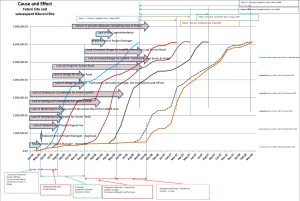
Time Impact Analysis, by use of the Critical Path Analysis, to calculate the time extensions and cost variations.
Almost all the projects in the construction industry had, during their performance, of adjustments, variations, different changes of purpose. The causes are many, as of natural factors, human, social, political, or they can be subjective or objective. Often, these changes lead to increases in the cost of performance, to the growth of the service execution at low production rates and unwanted immobilization of the involved resources.
Essential Engineering SRL performs an analysis of the projects evolution, identifies the risk factors and their impact on the programme of work, calculate the effects and assigns to the parties the liabilities of the delays and of the costs involved.
By using methodologies of analysis ( such as time-impact analysis, as-planned vs. as-built, etc.), it can be assigned the responsibility for the delays, as well as the analysis of the projected completion date in the future, together with corrective actions, including re-planning of the remaining works, to recover the delays.
Additional costs induced by the various delays are determined in accordance with the legal provisions and the contract.
With a solid computing power and last generation specialized programs, Essential Engineering SRL performs the analyses in optimal conditions of cost, duration and quality of the services provided.
In collaboration with our partners specialized in legal, economic and financial matters, we provide qualified support for solving contractual disputes.
“(…) This [Time impact Analysis] is a time-estimating procedure that utilizes critical path techniques (fragnets) and an analysis of the facts associated with each change to demonstrate any causation and delay effect on the project schedule.
[…] The objective is to demonstrate, graphically and mathematically, the influence and proper measurement of any delay associated with a change, and also the method for incorporating any such delay and impacts into the project schedule.” (Wickwire, Driscoll, Hurlbut, Hillman – Construction Scheduling: Preparation, liability and claims, Chapter 8).